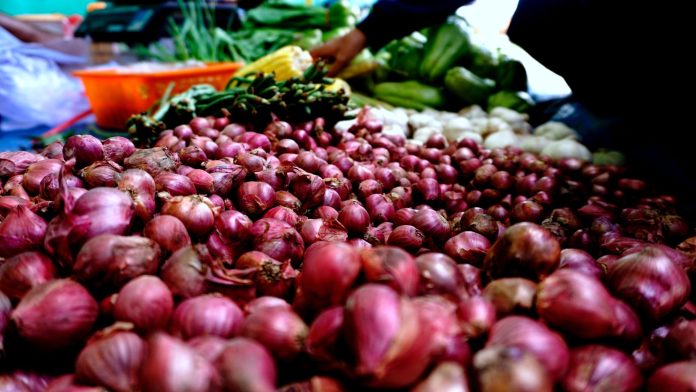JAKARTA – The newly formed management structure of the Indonesian Shallot Seed Association (APBMI) recently held an audience with the Directorate General of Horticulture.
The audience, which was held in order to coordinate shallot seeding activities, was attended by five administrators and 19 members.
APBMI has just inaugurated its management on 20 October 2023. It consists of 32 shallot seed producers from all over Indonesia.
The management of APBMI for the 2023-2026 period was formed by appointing Akad as chairman, Suheryadi as secretary, and Yuliana as treasurer.
Director General of Horticulture Prihasto Setyanto said that the existence of APBMI is a good thing, especially in terms of coordinating the provision of seeds for the needs of shallot villages.
Especially with the current leadership of the Minister of Agriculture Andi Amran Sulaiman, who is focusing on self-sufficiency and reducing import dependence of agricultural products.
“In the future, all shallot seed breeders will be registered, so that each breeder has a unique identity or code that will be included in the shallot seed producer database system so that seed production and distribution can be traced,” said Prihasto Setyanto in a written message, Friday (27/10).
Prihasto hopes that APBMI will not only present to talk about the need and stock of seeds, but more than that. It must play a role in maintaining the stability of seed prices and maintaining the quality of shallot seeds.
“In addition, APBMI is expected to be able to provide input and recommendations to the government regarding shallot seeding activities so as to improve the performance of shallot seeding in a better direction,” he explained.
In her welcoming remarks, Inti Pertiwi’s Director of Horticultural Seeds Nashwari said that the association’s presence has been long awaited.
The existence of this association, she said, will make the Directorate General of Horticulture’s programme successful.
“This is a very good start to the success of the programme to increase shallot seed production. With this association, shallot seed producers have a place to gather and facilitate communication between breeders and the Directorate General of Horticulture, especially in terms of seed supply,” he explained.
She further mentioned that the inauguration of this new structure was motivated by the difficulty of coordination between seed producers while onion seeds are urgently needed.
Especially with the onion village development programme, onion seeds will be in high demand.
On the other hand, there has been no visible role given by the association when there is an oversupply or when there is a shortage of shallot seed supply in Indonesia.
“We ask APBMI to inform the availability of shallot seeds that are currently ready for distribution. Furthermore, the Directorate of Horticultural Seeds will check the quality of the seeds and compare the price of the seeds at the seed breeders both available through the e-catalogue and outside the e-catalogue before making a seed procurement contract,” she explained.




